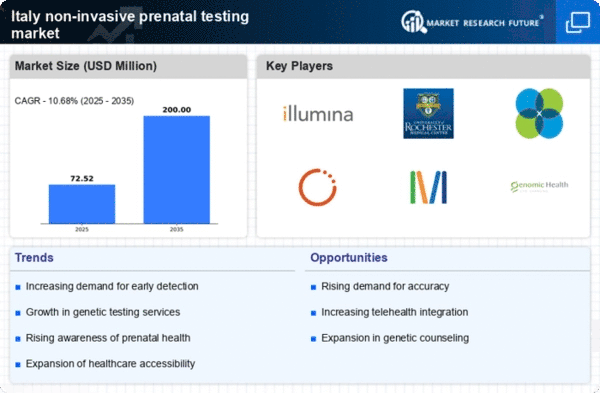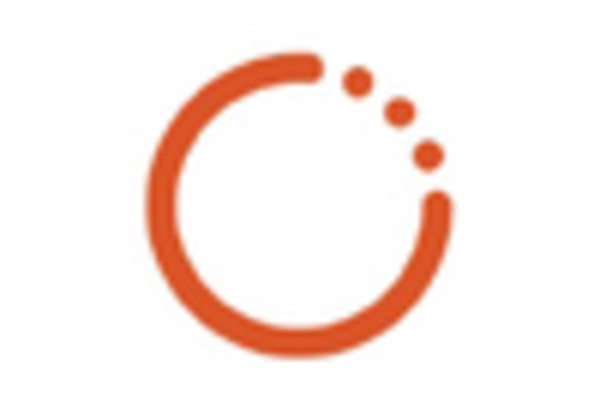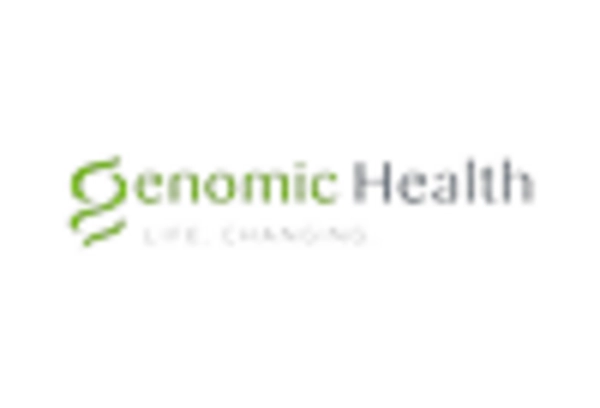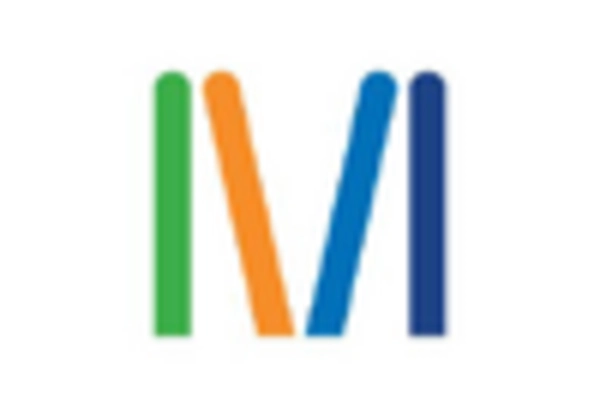Rising Socioeconomic Factors
Socioeconomic factors are increasingly impacting the non invasive-prenatal-testing market in Italy. As disposable incomes rise, more families are willing to invest in advanced prenatal testing options. The willingness to pay for non invasive tests is often correlated with educational attainment and awareness of health issues. In 2025, it is projected that the market will see a significant uptick in demand from higher-income demographics, who are more likely to seek out comprehensive prenatal care. Additionally, urbanization trends contribute to this growth, as urban populations tend to have better access to healthcare services and information. This shift in socioeconomic dynamics is likely to create a more favorable environment for the non invasive-prenatal-testing market, as families prioritize the health and well-being of their unborn children.
Growing Public Health Initiatives
Public health initiatives aimed at promoting maternal and child health are influencing the non invasive-prenatal-testing market in Italy. Government campaigns and educational programs are raising awareness about the importance of prenatal testing and its benefits. These initiatives encourage expectant parents to consider non invasive options for assessing fetal health, thereby increasing demand for such services. In 2025, it is anticipated that public health efforts will lead to a further increase in testing rates, as more families become informed about the advantages of early detection. Additionally, collaborations between healthcare providers and public health organizations are likely to enhance the availability of non invasive testing, making it more accessible to a broader population. This synergy between public health initiatives and the non invasive-prenatal-testing market is expected to foster a healthier future for mothers and their children.
Rising Demand for Early Detection
The non invasive-prenatal-testing market in Italy experiences a notable increase in demand for early detection of genetic disorders. Expectant parents are increasingly seeking non invasive methods to assess the health of their unborn children. This trend is driven by a growing awareness of the benefits of early diagnosis, which can lead to better management of potential health issues. In 2025, the market is projected to grow by approximately 15%, reflecting the heightened interest in prenatal testing solutions. The ability to identify conditions such as Down syndrome and other chromosomal abnormalities without invasive procedures is appealing to many families, thereby propelling the market forward. As healthcare providers emphasize the importance of early testing, the non invasive-prenatal-testing market is likely to expand further, catering to the needs of a more informed and proactive patient population.
Technological Innovations in Testing
Technological advancements play a crucial role in shaping the non invasive-prenatal-testing market in Italy. Innovations in genetic sequencing and analysis have led to more accurate and reliable testing methods. The introduction of next-generation sequencing (NGS) has revolutionized the way prenatal tests are conducted, allowing for the detection of a wider range of genetic conditions with higher precision. As of November 2025, the market is witnessing a surge in the adoption of these advanced technologies, which are expected to enhance the overall testing experience for patients. Furthermore, the integration of artificial intelligence in data analysis is likely to streamline processes and improve diagnostic accuracy. This technological evolution not only boosts the confidence of healthcare providers but also encourages expectant parents to opt for non invasive testing, thereby driving market growth.
Increased Accessibility of Testing Services
Accessibility to non invasive prenatal testing services is a significant driver for the market in Italy. The expansion of healthcare facilities offering these tests, including private clinics and hospitals, has made it easier for expectant parents to access necessary services. In recent years, the Italian healthcare system has made strides in integrating non invasive testing into routine prenatal care, which has contributed to a rise in testing rates. As of 2025, it is estimated that approximately 30% of pregnant women in Italy utilize non invasive prenatal testing, reflecting a growing trend towards preventive healthcare. This increased accessibility is likely to continue, as more healthcare providers recognize the importance of offering comprehensive prenatal care options. Consequently, the non invasive-prenatal-testing market is expected to flourish as it becomes a standard part of prenatal care.
















